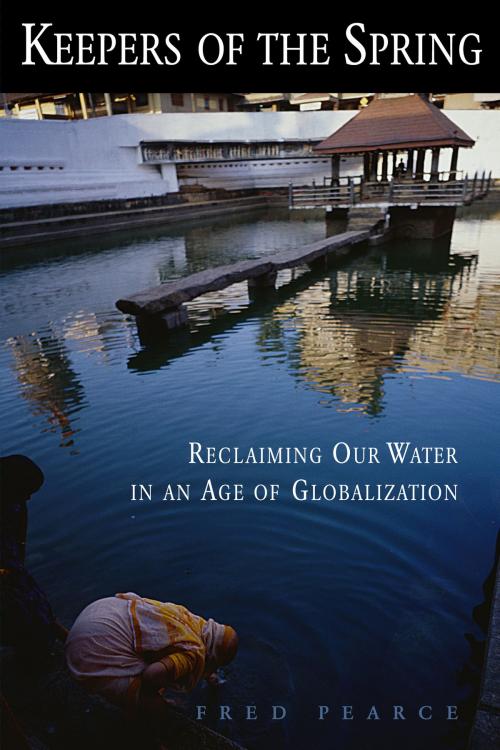Keepers of the Spring
Reclaiming Our Water In An Age Of Globalization
Nonfiction, Science & Nature, Nature, Environment, Rivers, Natural Resources| Author: | Fred Pearce | ISBN: | 9781597268936 |
| Publisher: | Island Press | Publication: | June 22, 2012 |
| Imprint: | Island Press | Language: | English |
| Author: | Fred Pearce |
| ISBN: | 9781597268936 |
| Publisher: | Island Press |
| Publication: | June 22, 2012 |
| Imprint: | Island Press |
| Language: | English |
Water has long been the object of political ambition and conflict. Rechistory is full of leaders who tried to harness water to realize national dreams. Yet the people who mneed water--farmers, rural villages, impoverished communities--are too often left, paradoxically, with desiccated fields, unfulfilled promises, and refugee status.
It doesn't have to be this way, according to Fred Pearce. A veteran science news correspondent, Pearce has for over fifteen years chronicled the developmof large-scale water projects like China's vast Three Gorges dam and India's Sardar Sarovar. But, as he and numerous other authors have pointed out, far from solving our water problems, these industrial scale projects, and others now in the planning, are bringing us to the brink of a global water crisis.
Pearce decided there had to be a better way.
To find it, he traveled the globe in search of alternatives to mega-engineering projects. In Keepers of the Spring, he brings back intriguing stories from people like Yannis Mitsis, an ethnic Greek Cypriot, who is the last in his line to know the ways and whereabouts of a network of underground tunnels that have for centuries delivered to farming communities the water they need to survive on an arid landscape. He recounts the inspiring experiences of small-scale water stewards like Kenyan Jane Ngei, who reclaimed for her people a land abandoned by her governmas a wasteland. And he tells of many others who are developing new techniques and rediscovering anciones to capture water for themselves.
The solution to our water problems, he finds, may not lie in new technologies but in recovering ancitraditions, using water more efficiently, and better understanding local hydrology. Are these approaches adequate to serve the world's growing populations? The answer remains unclear. But we ignore them at our own peril.
Water has long been the object of political ambition and conflict. Rechistory is full of leaders who tried to harness water to realize national dreams. Yet the people who mneed water--farmers, rural villages, impoverished communities--are too often left, paradoxically, with desiccated fields, unfulfilled promises, and refugee status.
It doesn't have to be this way, according to Fred Pearce. A veteran science news correspondent, Pearce has for over fifteen years chronicled the developmof large-scale water projects like China's vast Three Gorges dam and India's Sardar Sarovar. But, as he and numerous other authors have pointed out, far from solving our water problems, these industrial scale projects, and others now in the planning, are bringing us to the brink of a global water crisis.
Pearce decided there had to be a better way.
To find it, he traveled the globe in search of alternatives to mega-engineering projects. In Keepers of the Spring, he brings back intriguing stories from people like Yannis Mitsis, an ethnic Greek Cypriot, who is the last in his line to know the ways and whereabouts of a network of underground tunnels that have for centuries delivered to farming communities the water they need to survive on an arid landscape. He recounts the inspiring experiences of small-scale water stewards like Kenyan Jane Ngei, who reclaimed for her people a land abandoned by her governmas a wasteland. And he tells of many others who are developing new techniques and rediscovering anciones to capture water for themselves.
The solution to our water problems, he finds, may not lie in new technologies but in recovering ancitraditions, using water more efficiently, and better understanding local hydrology. Are these approaches adequate to serve the world's growing populations? The answer remains unclear. But we ignore them at our own peril.















